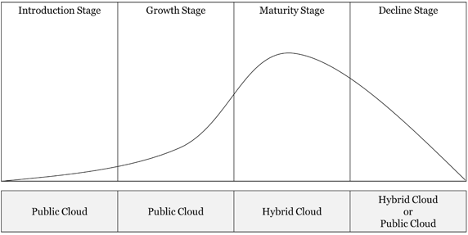I have been teaching a course on Digital Transformation for a few years now, normally with Ben Ellermann, Managing Director of MUUUH! Next and Future of Voice as well as a frequent collaborator in past projects. We have run the course at Munich Business School and were recently invited teach it at Otto von Guericke University Magdeburg as well. While I focus on the relevant frameworks, models and up-to-date research literature, Ben usually brings his perspective from practice and contributes several real-world examples he has been working on lately.
After a discussion of some well-known frameworks, I have broken up the course into so-called immersion sessions, in each of which we discuss relevant sub-topics to the field of Digital Transformation, normally presented by course participants. Topics covered in these immersion sessions include digital (transformation) strategy, business model innovation, digital platforms, data analytics, digital labs, agility/scrum and cloud computing. Depending on the set-up, course participants may also need to write a seminar paper on an immersion topic of their choice.
Occasionally, when seminar papers turn out very well and students seem to enjoy intellectual challenges, I continue to work with them, encourage them to present their work at conferences, dive deeper into their topics for empirical thesis work and/or publish papers. These options seem to be particularly attractive to part-time students, who are professionally engaged in a field already and have an interest in building a reputation for expertise in a specific domain.
One such case is a recently published paper with Timo Puschkasch, an MBA graduate and IT consultant with a focus on cloud computing. Unsurprisingly, Timo chose cloud computing as an immersion topic for his paper. He presented a revised version of the paper, titled “Managing Cloud Computing Across the Product Lifecycle: Development of a Conceptual Model”, at the 2019 Workshop on e-Business (WeB 2019), which took place in Munich and was hosted by Munich Business School.
In short, the paper specifies how different cloud computing setups (e.g. private cloud, public cloud) are used across the product lifecycle of digital products (e.g. apps) and provides a frame for decision-makers to choose the right employment strategy in each lifecycle phase. The findings are summarized in the below figure.

Timo has also published a summary and some reflections about the process on the MBS blog. Below you can find the reference to the paper, the conference presentation, a draft version, the links to the full chapter and the entire conference proceedings.
Reference:
Puschkasch, T., & Wagner, D. 2020. Managing Cloud computing Across the Product Lifecycle: Development of a Conceptual Model. In K. R. Lang, J. Xu, B. Zhu, X. Liu, M. J. Shaw, Z. Ming, F. Han (Eds.), Smart Business: Technology and Data Enabled Innovative Business Models and Practices: 18th Workshop on e-Business, WeB 2019. Lecture Notes in Business Information Processing, vol 403: 133-142. Cham: Springer. [Draft, Chapter, Book]


2 thoughts on “Cloud Computing for Digital Transformation: From Course to Conference”